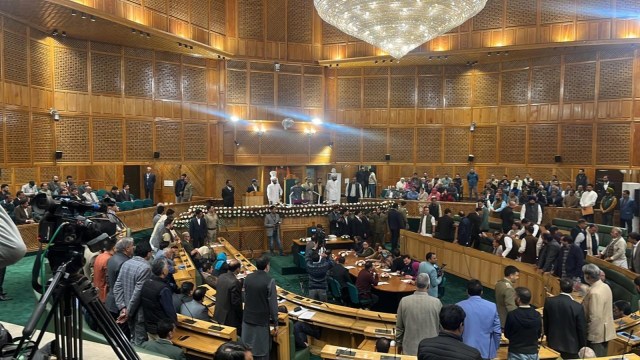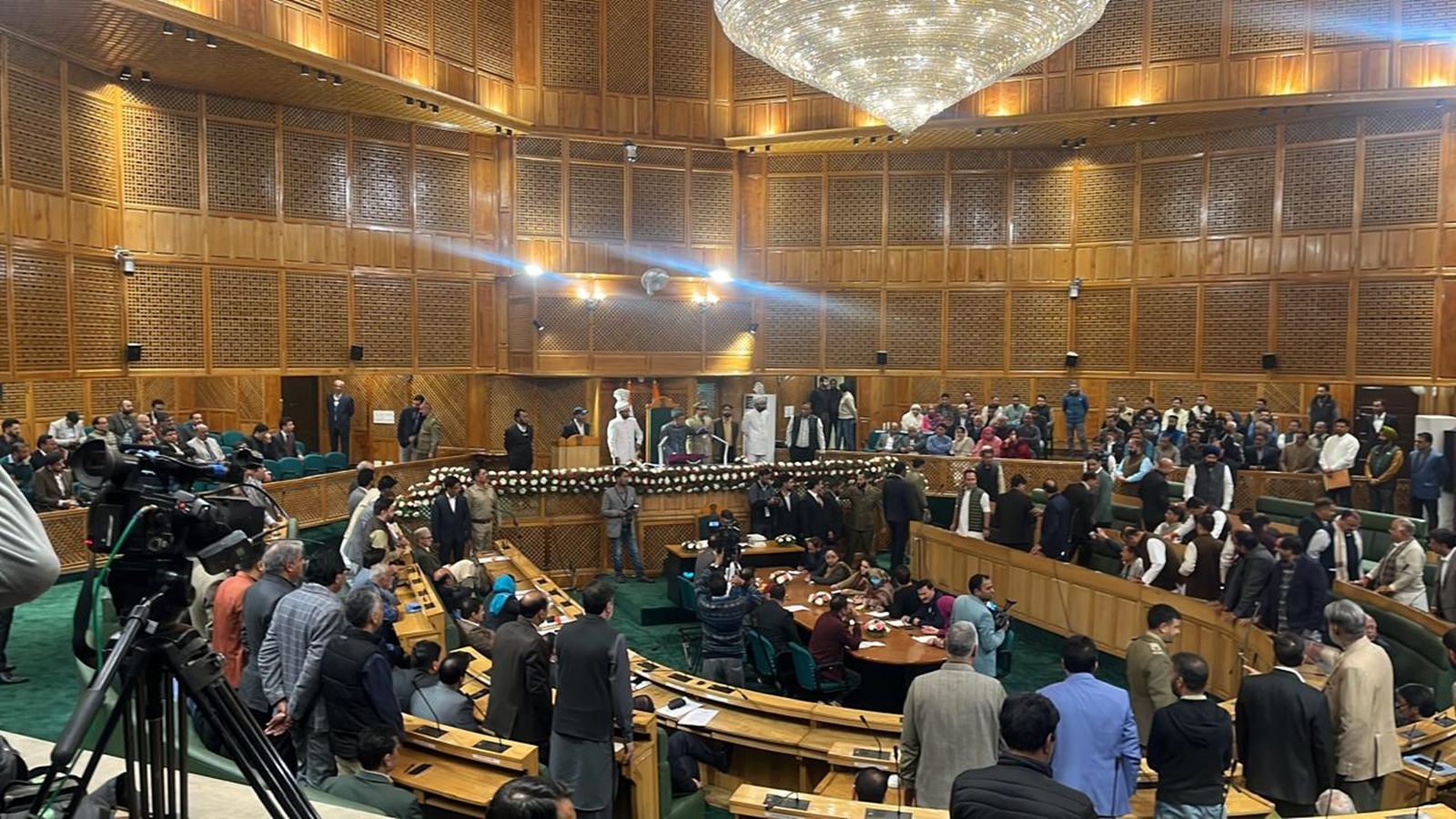

Nov 16, 2024 02:45 IST First published on: Nov 16, 2024 at 04:45 IST
There was a futile tamasha in the Jammu and Kashmir legislature last week in the name of passing a resolution on the restoration of special status. Without directly referring to Article 370, the resolution demanded the restoration of the “special status and constitutional guarantees, which safeguarded the identity, culture, and rights of the people of Jammu and Kashmir”. If anyone harboured doubt as to whether it referred to the Articles 370 and 35A, abrogated five years ago, Chief Minister Omar Abdullah laid them to rest by explaining the “special status” in his maiden address: “We have lost a lot in the last six years. When I was last in this House, we were a State, we had our own Constitution, and our flag. But all of that was taken away from us.”
Resolutions of this nature don’t have any constitutional validity. Sometimes, they acquire sanctity because they express the solidarity of the nation. On February 22, 1994, both Houses of the Indian Parliament unanimously passed a resolution on J&K, demanding that Pakistan must vacate the areas in that state that it occupied “through aggression”. It was hailed as the expression of “national resolve”. On the contrary, the resolution that the UT legislature passed on November 6 was a hogwash. What sanctity would such a resolution have, which was hurriedly pushed through a voice vote amidst strong opposition from the BJP? The resolution can at the most be described as the deception by the “Gupkar Group”.
The history of Article 370 demonstrates the deceptive politics practised by both Congress and National Conference in the last seven decades. For example, they repeatedly lie to the people that Article 370 granted “special status”. Where did that phrase come from? In fact, when Sheikh Abdullah approached B R Ambedkar for special status for J&K, the latter firmly rejected saying that “making limited application of laws made by Parliament for the state of Jammu and Kashmir would create lots of problems rather than solving.” The Article was finally inserted in the Indian Constitution only as “Temporary provisions with respect to the State of Jammu and Kashmir”. Nowhere did the Constitution describe it as “special status”.
As regards the so-called “constitutional guarantees”, the Article was subjected to major amendments at least on four occasions — in 1954, 1966, 1975 and 1986 — taking away whatever temporary powers the state enjoyed courtesy of the infamous Delhi Agreement of 1952. It must be remembered that it was the Congress that was in power on all these occasions.
During Jawaharlal Nehru’s tenure, demand for the repeal of Article 370 was raised in Parliament several times. India’s first spy chief, B N Mullik, claimed that in a private conversation, Nehru made the extraordinary admission that India “agreed with the Jana Sangh’s views that Jammu & Kashmir should be fully integrated with India and was taking steps in that direction”. In Parliament, in an oral reply, he said that Article 370 had been “eroded and Kashmir stands fully integrated”.
When Prakash Vir Shastri, a Jana Sangh member, moved a Private Member’s Bill in Parliament in 1964 on Article 370, it received wide support. Abdul Ghani Goni from J&K, a close associate of Sheikh Abdullah’s, delivered an aggressive speech stating that the then Prime Minister of J&K, Bakshi Ghulam Mohammad, had moved for abrogation of Article 370, but the central government was not agreeable to it at that time. “I do not know whether the Central Government is under the influence of the West or wants appeasement policy towards Pakistan… they want to please their neighbours at our cost. The people of Kashmir had decided once and for all that Kashmir is an integral part of India, whether there is Article 370 or no Article 370. It is only a provisional and temporary provision which can be removed at any time,” he said, appealing to the Congress members for support to the bill “so that we may also be treated as equal citizens, as good citizens of India as any other citizen. Don’t treat us as second-class citizens, and don’t treat us as a colony of India. We are as much a part of India as other states.”
Syed Nasir Husain Samnani, another member from that state, rose to make a passionate speech, saying, “We, the people of Kashmir, never demanded that we should be treated differently. We do not want Article 370. I want to end this curse in my lifetime, for my safety, for my children’s safety, for the safety of our future generations. We should have the same laws as Maharashtra, Madras, Kerala, Bengal.”
most read
The reality is that by the time of its neutralisation in 2019, the Article was largely hollowed out by the Congress party under popular pressure, while the NC supported it tacitly by looking the other way. But Congress lacked the courage and political will to remove the Article. Displaying that courage, the BJP government did away with the vestiges of it for two reasons. First, it was being used by Gupkar leaders to create a false sense of “special status” and an emotional wedge between the people of Kashmir and the rest of the country. Second, the namesake separate state constitution that existed was creating hurdles in running the administration. For example, while J&K acceded to the GST law, it continued to levy state taxes also, a double whammy on its people, because there was no provision to amend the state constitution.
It is clear that the ending of the 370 regime gave great relief to the people of the UT. But the NC and Congress, known for their duplicity of stating one thing in Delhi and the opposite in Kashmir, are again displaying their mastery over the politics of deception. They know very well that Article 370 is dead, “long live Article 370”.
The writer, president, India Foundation, is with the BJP. Views are personal


